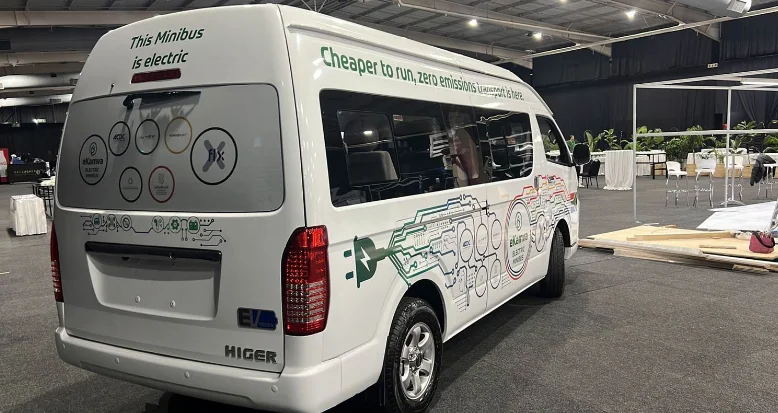Christened the eKamva (kamva is the Xhosa word for future), the 15-seater battery-powered minibus is supported by a cluster of dedicated “taxi-rank adjacent” charging stations to support the taxi industry’s transition to electric mobility.
Coetzee said the DC charging hubs to support its electric taxis provide 60kW and are able to charge the eKamva to 80% capacity in an hour, with a full charge taking 75 minutes. eKamva delivers cost savings of between 40% and 70% on running costs compared traditional internal combustion engine vehicles of a similar build, he said.
According to Coetzee, much of the cost savings promised by eKamva relate to the fact that the vehicle has only eight moving parts compared to the complexity of a traditional petrol- or diesel-powered taxi. “There are no oil filters and air filters, spark plugs or oil to change, so it is much easier to maintain. There are also fewer points of [possible] failure.
I’m blown away that the usual 40% tax on EV imports will also apply to these vehicles (South Africa really needs to sort this out, as these are not “luxury vehicles”).
I just dread to think what could happen though when drivers discover the acceleration that an EV motor has. It could be great for safer overtaking, but we’ll really have to see how this pans out.
The last paragraph in the linked article s very interesting about future plans for driver safety monitoring. As far as any public transport drivers go, this is probably a good thing.
See https://techcentral.co.za/south-africa-first-electric-minibus-taxi/252746

